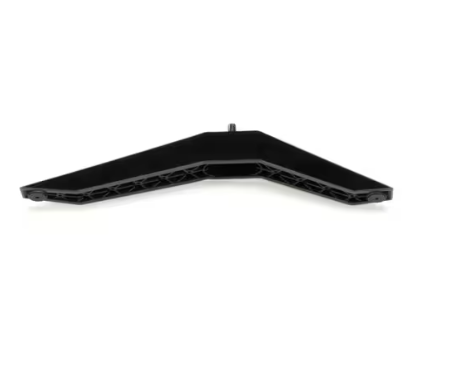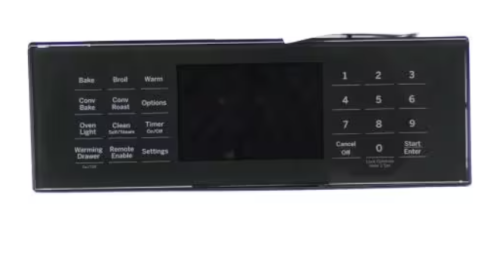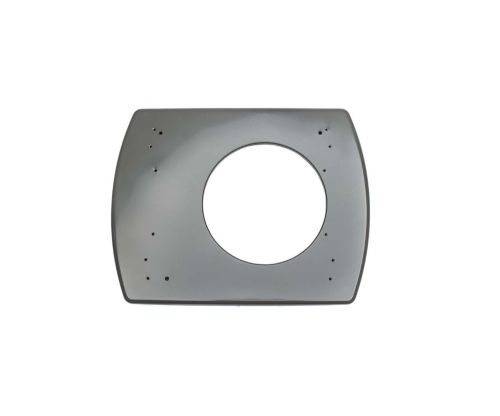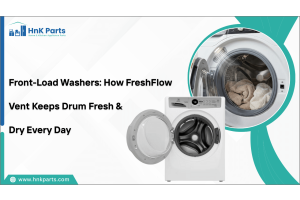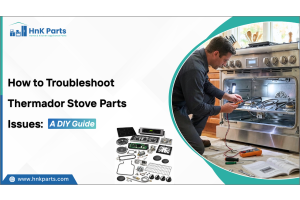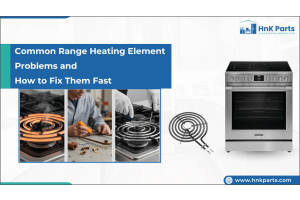
The Silent Heroes of Your Kitchen: Appliance Repair and Longevity
Kitchen appliances are an integral part of your kitchen, aiding throughout the cooking process and making our routines effective, efficient, and enjoyable. From a toaster to ovens or stoves, these appliances are making our daily lives in the kitchen easy and saving a huge amount of time not only that, but also expanding culinary possibilities. Appliance maintenance is paramount as it ensures the reliability, efficiency, and longevity of household devices and equipment. Regular maintenance prevents costly breakdowns and repairs and promotes safety and optimal performance. In this blog, we are going to make a note of how efficiently a user can maintain their appliances and keep the performance of their appliance, hence prolonging the lifespan of the appliance to greater extents.
The silent heroes of your kitchen
The kitchen appliances are the unsung heroes of our daily routine, playing a major part in our everyday life which are meant to simplify our cooking and food preparation. Here are some main and important and frequently used kitchen tools in our day-to-day life:
- Sponges and Scrubbers: These are versatile for cleaning various surfaces, from countertops to dishes, and effectively remove food residue and stains.
- Microfiber Cloths: These lint-free, highly absorbent cloths are excellent for wiping down surfaces, drying dishes
- Oven Mitts: While primarily for safety, they also serve as cleaning tools for hot surfaces or spills within the oven.
- Dishwasher Cleaners: Periodic use keeps the dishwasher free from limescale and detergent residue, ensuring efficient cleaning.
- Knife: An all-purpose knife for chopping, slicing, and dicing.
- Can Opener: For opening canned goods.
- Drainer/Strainer/Cullender: For draining pasta, fruits, and vegetables.
- Spatula: For flipping and turning food into pans.
- Pot and Pan Set: Various sizes for cooking different dishes.
- Tongs: Handy for turning, flipping, and serving hot items without touching them.
- Can Opener: Essential for opening canned goods and preserving contents.
- Ladle: For serving soups, stews, and sauces.
How long do kitchen appliances last?
The lifespan of kitchen appliances varies considering the type, brand, and maintenance. Regular maintenance, proper use, and timely repairs can significantly extend their longevity, investing in quality and upkeep is important for getting the most value out of your kitchen tools.
- Refrigerators: Typically last 10 to 15 years, with newer models often having a shorter lifespan due to more electronic components.
- Ranges and Ovens: Gas ranges last around 15 years, while electric ranges and oven parts and ovens and can last 13 to 15 years.
- Dishwashers: Last around 9 to 12 years, with proper maintenance.
- Microwaves: Usually have a lifespan of 9 to 10 years.
- Garbage Disposals: Lasts 8 to 15 years.
Regular appliance maintenance and prompt repairs contribute to extending the lifespan of kitchen appliances, not only maintenance but also proper usage of quality appliance replacement parts when needed repair is also essential. While neglect and substantial usage may lead to damage and earlier replacements.
How do you maintain the appliances to improve longevity?
Maintaining your appliances properly can significantly improve their longevity and performance.
- Go Through the Manual: Familiarize yourself with the manufacturer's guidelines for usage and maintenance provided in the user manual of the respective appliance.
- Well-organized cleaning: Keep your appliances clean inside and out. Remove food residue, grease, and dust regularly. This prevents buildup that can affect efficiency.
- Refrigerator: Clean the condenser coils at least once a year to help the fridge cool up efficiently. Ensure the door seals are tight, and defrost the freezer if it's not frost-free.
- Oven and Stove: The best way to clean an oven is to clean spills and splatters promptly to prevent burnt-on residue. Replace oven gaskets if they are damaged to maintain proper insulation.
- Dishwasher: Regularly clean the filter and spray arms, and periodically run a dishwasher cleaner to remove limescale and buildup.
- Microwave: Use microwave-safe covers to prevent splatters and clean spills as they occur. Check the door seals for tightness.
- Garbage Disposal: Run cold water before and after use, and avoid putting non-food items down the disposal. Periodically use disposal cleaner to prevent odors.
- Thorough Regular Inspections: Periodically check for signs of wear, loose connections, or unusual noises. Label the issues promptly to prevent larger problems.
- Replace Filters: For appliances with filters (like range hoods or water filters), replace or clean them according to the manufacturer's instructions.
Know more about the Best ways to keep your Home appliances in good shape.
The best ways to clean your kitchen appliances
Our appliances need a decent and thorough cleaning every once in a while to maintain a healthy performance and smooth running of the device. Here are various effective ways of cleaning your appliances in your kitchen:
- Refrigerator: First, empty the appliance, and wipe down the interior and exterior with lukewarm water. Clean shelves and drawers by detaching them from the refrigerator. Use a dry microfiber cloth to wipe down the exterior at the end of the process.
- Oven and Stove: The best way to clean an oven is to wipe down the stovetop after each use to prevent burnt residues. For oven cleaning, detach the racks and clean them separately. Use oven cleaners for interior cleaning. Burner Grates need to be cleaned with warm soapy water to remove tough stains.
- Microwave: Place a bowl of water with lemon or vinegar in the microwave and run it to loosen stains and odors. Wipe down the interior with a damp cloth.
- Garbage Disposal: Grind ice cubes to clean the blades. Use a disposal cleaner or a mixture of baking soda and vinegar to prevent odors.
- Dishwasher: Remove and clean the filter regularly. Use a dishwasher cleaner to remove limescale and buildup.
- Toaster and Toaster Oven: Empty the crumb tray regularly. Unplug and turn upside down to shake out crumbs.
- Mixer: Clean attachments and bowls with warm, soapy water. Wipe down the mixer's body with a damp cloth.
Why should you clean your kitchen appliances regularly?
Regular cleaning of kitchen appliances ensures their efficient and safe operation, enhances hygiene, and contributes to a clean and appealing kitchen environment. Here are some major and important points on how to clean your kitchen tools:
- Hygiene: Food particles, spills, and residues can harbor harmful bacteria and germs. Regular cleaning helps prevent contamination.
- Efficiency: Clean appliances function more efficiently. Maintaining efficiency can save energy and resources.
- Longevity: Cleaning removes dirt and debris that can damage appliance components over time.
- Safety: Dirty appliances, such as ovens or stovetops, can be fire hazards if grease or food residue ignites. Regular cleaning reduces this risk and keeps your kitchen safe.
- Odor Control: Regular cleaning prevents the buildup of food-related odors and keeps your kitchen smelling fresh.
- Preventative Maintenance: Cleaning allows you to identify and address issues early. For example, a leaky dishwasher hose can be repaired before it causes water damage.
- Appearance: A clean kitchen with spotless appliances looks more inviting and well-maintained. It enhances the overall aesthetics of your home.
Repair vs Replacing: which is the best to ensure the longevity of the appliance
Deciding between repairing and replacing an appliance to ensure longevity depends on several factors. If the appliance is relatively new, a repair can be cost-effective and extend its lifespan. However, if the appliance is older, frequent breakdowns and diminishing efficiency may indicate that replacing it with a more energy-efficient model could be a better long-term investment. Whether to repair or replace an appliance depends on several factors, and the decision can impact the appliance's longevity and the availability of appliance replacement parts. Here's a general guideline:
- Age of the Appliance: If the appliance is relatively new and still under warranty, it's often more cost-effective to repair it.
- Cost of Repair: Consider the cost of repairs compared to the appliance's current value. If the cost of repairs is lower than the cost of a new appliance and the existing appliance has many years of expected service left, repairing is the preferred choice.
- Frequency of Repairs: If the appliance repair is too frequent, it may be a sign of deteriorating reliability. Replacing the appliance with a more reliable one may be a better long-term investment.
- Technological Advancements: Newer appliances often come with advanced features and improved performance. If your appliance lacks essential features or is outdated, replacing it can be a wise choice.
- Energy Efficiency: Newer appliances are often more energy-efficient, which can lead to long-term cost savings on utility bills. If your old appliance is energy-inefficient, replacing it with a newer model can ensure longevity.
A well-suited repair can extend the longevity of the appliance while replacing it with a newer, more energy-efficient model can also ensure long-term value and performance.
Read more about the 12 Most Common Appliance Problems & Solutions.
Are the most expensive kitchen appliances worth it?
Expensive kitchen appliances often come with advanced features, superior build quality, and energy efficiency. If these features align with your requirements and you can afford the investment, they can be worth it for the enhanced performance, longevity, and energy savings they offer. However, be decisive in considering your budget, the appliance's long-term benefits, and whether the premium features align with your lifestyle.
- Quality and Durability: High-end appliances are often built with premium materials and superior design, making them more durable and performance-driven. Investing in such kind of appliance may be worth it.
- Modern tech features: Expensive appliances come with advanced features, cutting-edge technology, and smart capabilities that enhance performance and convenience.
- Energy Efficiency: Many expensive appliances are designed to be more energy-efficient, which can lead to long-term cost savings on utility bills and reduce environmental impact.
- Brand Reputation: High-end appliances are often associated with reputable brands known for their reliability and customer support. Investing in well-established brands such as Samsung, GE Appliances, LG, and Whirlpool can provide peace of mind and better after-sales service.
- Resale Value: Expensive kitchen appliances may retain their value better over time, potentially benefiting you if you decide to sell your home or appliances in the future.
Troubleshooting common appliance issues
By identifying and addressing issues promptly, you can prevent costly appliance repairs or the need for replacements. Troubleshooting ensures that your appliances operate efficiently and effectively, saving you energy and maintenance expenses on buying appliance repair parts.
- Refrigerator: Check the thermostat setting and ensure there's proper airflow around the fridge. Check for clogged or frozen defrost drains. Inspect the water line and filter leaks.
- Oven and Stove: Calibrate the oven temperature or adjust the cooking time. Check for loose or disconnected wires. Test the burner element for continuity.
- Microwave: Remove any metal objects from the microwave and clean the interior to remove food splatters. Look for loose or broken parts, especially the turntable support or motor.
- Dishwasher: Check for debris in the drain filter and the drain hose. Clean the spray arms and ensure they can rotate freely. Use dishwasher cleaner to remove limescale buildup.
- Dryer: Clean the lint screen and check for blocked vents. Ensure the heating element or gas valve is working. Look for loose or worn parts like drum glides, rollers, or loosened belts.
- Garbage Disposal: Use the disposal's wrench or a wooden dowel to free obstructions. Tighten connections or replace the sink flange gasket.
- Coffee Maker: Clean the machine and the coffee maker's components. De-scale it to remove mineral buildup. Examine the water reservoir, seals, and hoses for damage.
Kitchen appliances play a pivotal role in the modern kitchen, simplifying cooking, food storage, and cleaning tasks. They enhance convenience and enable diverse culinary experiences. A well-maintained appliance operates reliably, reducing the risk of breakdown and expensive appliance repair for the devices. Moreover, energy-efficient appliances can lower utility bills and contribute to environmental sustainability. Regular appliance maintenance is highly beneficial, as it ensures their longevity, efficiency, and safety. It is a proactive approach that keeps appliances functioning reliably, minimizes unexpected repair costs, and contributes to a more sustainable and environmentally responsible lifestyle.
FAQs
What are the three most important appliances in a kitchen?
The three most important appliances in a kitchen are the refrigerator, stove or oven, and dishwasher. These appliances are essential for food storage, cooking, and efficient dish cleaning, forming the foundation of a functional kitchen.
Can a refrigerator last 20 years?
A refrigerator can have a life expectancy of about 20 years but it depends on the brand, model, and regular maintenance. High-quality appliances with proper care are more likely to achieve this lifespan.
What is the average lifespan of an oven?
The average lifespan of an oven is typically around 10 to 15 years. Proper maintenance and usage can extend its longevity.
Do more expensive dishwashers last longer?
More expensive dishwashers often have better build quality, advanced features, and durability, which can result in a longer lifespan compared to economical models.
How do you choose the right kitchen appliances?
When choosing kitchen tools, consider your needs, budget, available space, and desired features. Look for reputable brands, and energy efficiency, and read reviews to make an informed decision.
What is the easiest appliance color to keep clean?
White is often considered the easiest appliance color to keep clean. It tends to show fewer smudges, fingerprints, and stains compared to darker colors, making it a popular choice for those seeking low-maintenance appliances.
Which type of washing machine has a longer life expectancy?
Front-loading washing machines tend to have a longer life expectancy compared to top-loading machines. They typically have more advanced features, use less water, and are generally built with higher-quality materials.


